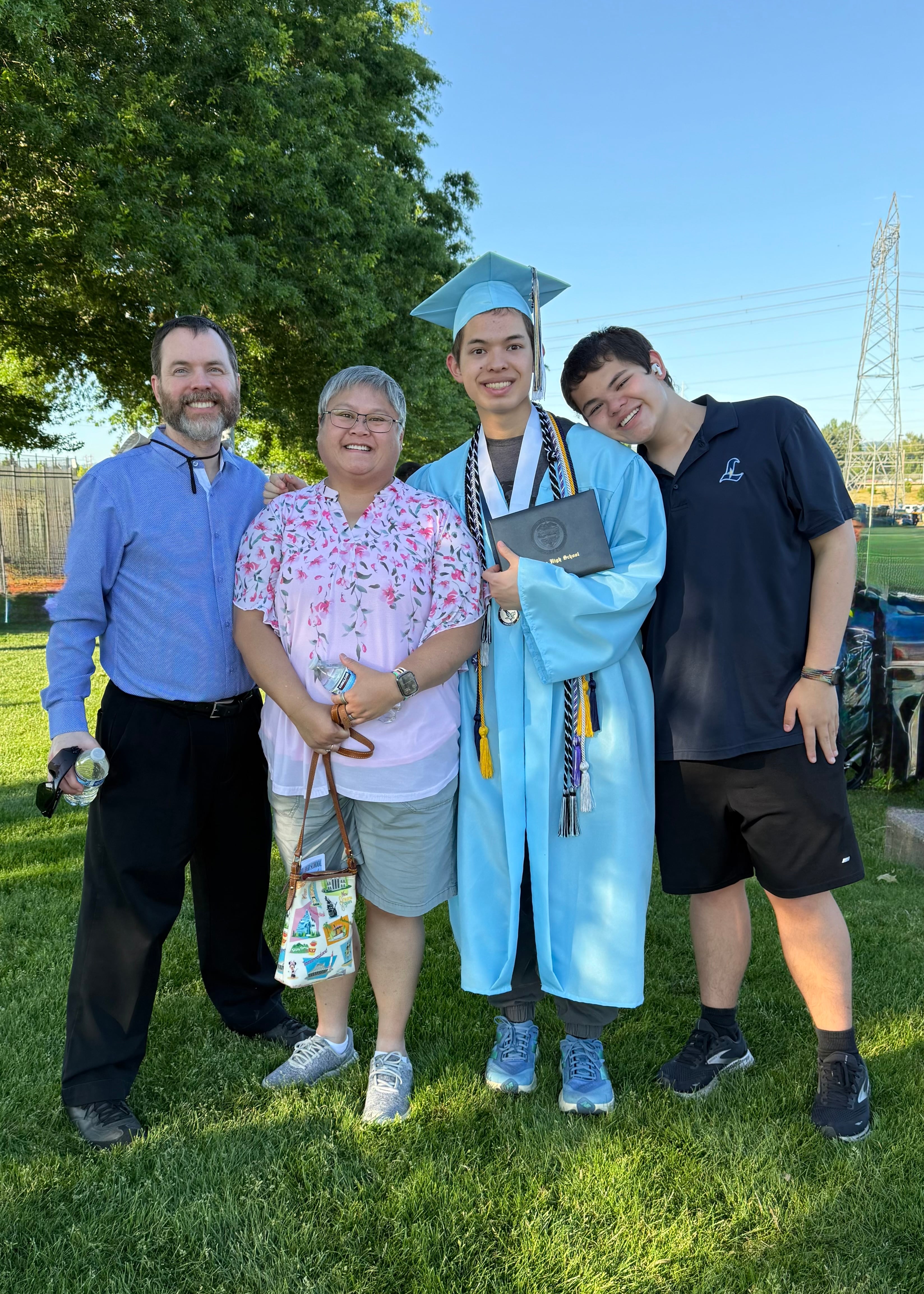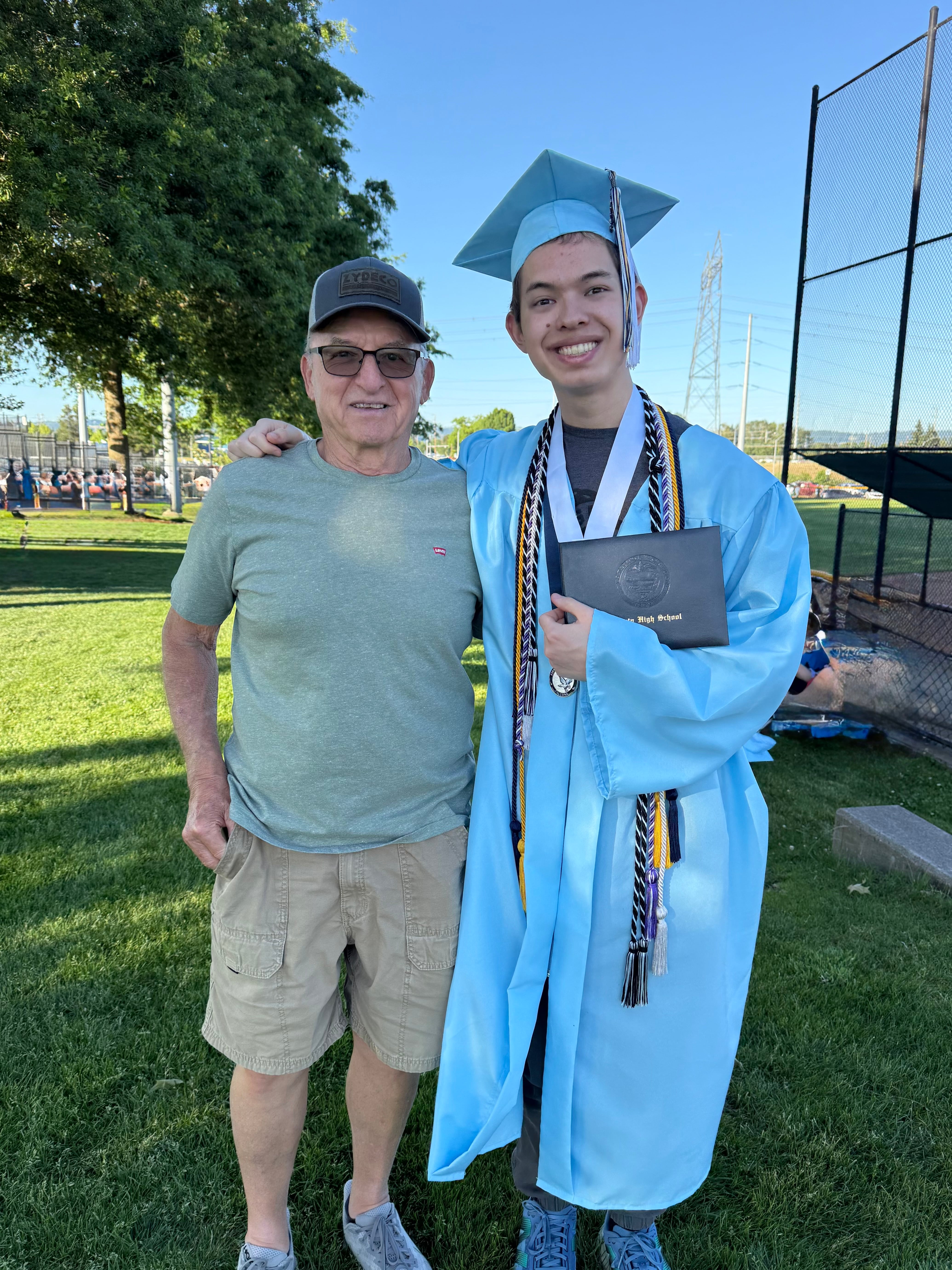

Published on: 06/13/2025
This news was posted by Oregon Today News
Description
Third grade is an important year. It’s the first time kids take standardized tests. It’s the year students are expected to become strong readers, so they can be more independent learners in higher grades.
For Kal Sibbel, it was the year he found something better than recess. And now, nearly a decade later, his third-grade epiphany has charted a course for after graduation.
When he was younger, Sibbel was not a fan of school.
He didn’t like being told he had to go learn, and, as someone who prefers the indoors, he didn’t like being told to enjoy himself at recess.
“That kind of takes the joy out of it,” he told OPB. “And it really bothered me.”
Looking back, it was the lack of autonomy that irked the then-elementary schooler.
Sibbel’s third-grade teacher noticed and had an idea that would give Sibbel the very thing he wanted — a choice.
Sometimes, instead of recess, Sibbel had the option to go to the life skills room and spend time with the students there instead. Life skills classrooms are settings for students with mental or physical disabilities who may require additional support to learn core skills.
“She introduced (me) to the life skills classroom that has drastically changed my life, and it’s,” Sibbel paused, “it’s been such a wonderful blessing.”
Sibbel, now 18, is one of the tens of thousands of Oregon students who graduated from high school this spring. He graduated as a valedictorian of Liberty High School in Hillsboro.
Looking back on his school career, Sibbel sees that moment in elementary school as the point of change in his trajectory. He said his third-grade teacher and the experiences he had in the life skills classroom “changed my outlook on school.”

He remembered being in the life skills classroom, playing with the other students. They blew bubbles and read books. He recalled driving toy cars on a tabletop surface with a town-like design on it.
“At that point, I didn’t really understand the challenges of communicating without verbal language,” Sibbel said. “With those toys, we could very easily express our joy. The action wasn’t complicated by our abilities or how we interacted academically.
“It was simply about us having fun together.”
Sibbel played with these peers throughout his time in elementary school. He had different teachers along the way, but they all saw how spending time in the life skills classroom helped him and the other students.
Sibbel was separated from the kids he knew in the life skills classroom when they went to middle school and as classes were remote for COVID-19. But Sibbel didn’t forget them.
In high school, Sibbel reunited with his friends through his high school’s chapter of Best Buddies, an international organization striving to enhance the lives of people with intellectual and developmental disabilities.
He remembered the joy when they were reunited.
“It was exhilarating. I was very glad to see these faces that I had not seen for so long,” he said. “Some of the students who I’d not seen for a few years, they recognized me. They were very cheerful, and they smiled, and they lit up.
“It was one of the most heartfelt, one of the most touching moments I’ve had in high school.”
Sibbel was very active throughout his teens. He maintained a high GPA and served recently as a student representative to the Hillsboro school board.
Through Best Buddies, Sibbel saw his friends at least once a month. They would sing karaoke, eat snacks together, play games, chat and go on field trips. Through the field trips especially, Sibbel saw how much educational assistants helped his friends in medically fragile classrooms.
All of these experiences informed his role on the school board and his interest in statewide issues, he said, including the push to remove Oregon’s special education funding cap during the 2025 legislative session.
The busy finale of Sibbel’s senior year culminated with his graduation ceremony this last Saturday, followed by a grad night party. He said he was excited “to have one last night to be a kid.”

Sibbel plans to study computer science at Oregon State University. While he’s moving away from the school buddies he’s known since third grade, he’s taking their inspiration with him. He hopes to learn how to make the adaptive tools used in special education classrooms more affordable and effective.
One of his major life goals? “To have my experience in computer science … seriously improve the quality of life of the neurodiverse community.”
Until then, Sibbel can celebrate the accomplishment at hand — the not-so-small feat of graduating from high school.
“I’ve loved being a part of Hillsboro School District, and I feel they prepared me to enter the world as an adult,” he said. “I’m very grateful for the time I got to spend with my friends and the teachers who helped me along the way.”
News Source : https://www.opb.org/article/2025/06/13/kal-sibbel-computer-science-disabilities-adaptive-technology-special-education/
Other Related News
06/14/2025
The Portland Timbers have still never lost to the San Jose Earthquakes during MLS play at ...
06/14/2025
Soccer City USA
06/14/2025
OMAHA Neb The Oregon State baseball team filed one by one down a cramped hallway in the b...
06/14/2025
A restroom and storage facility will be adjacent to the planned beach volleyball courts at...
06/14/2025









